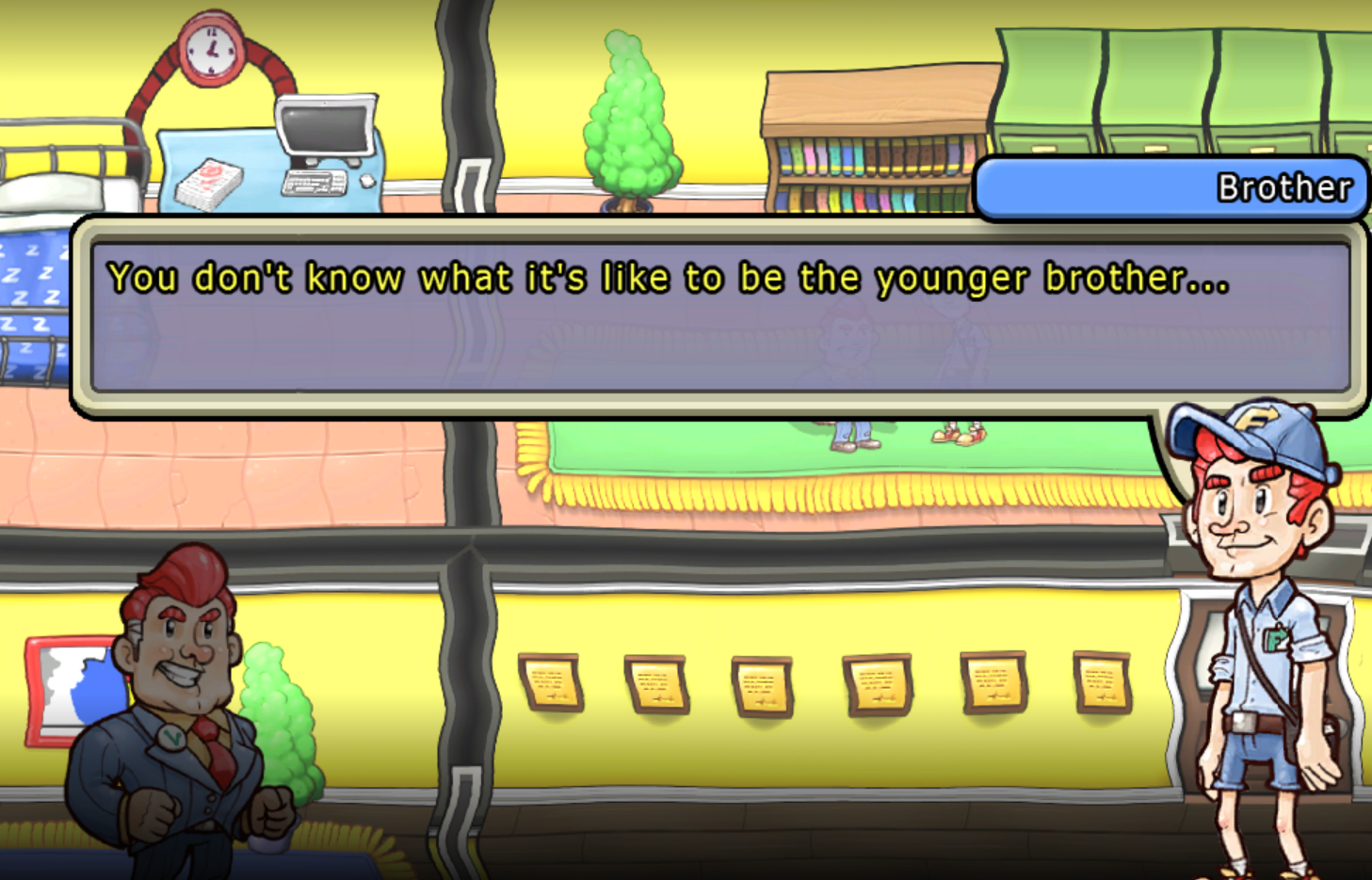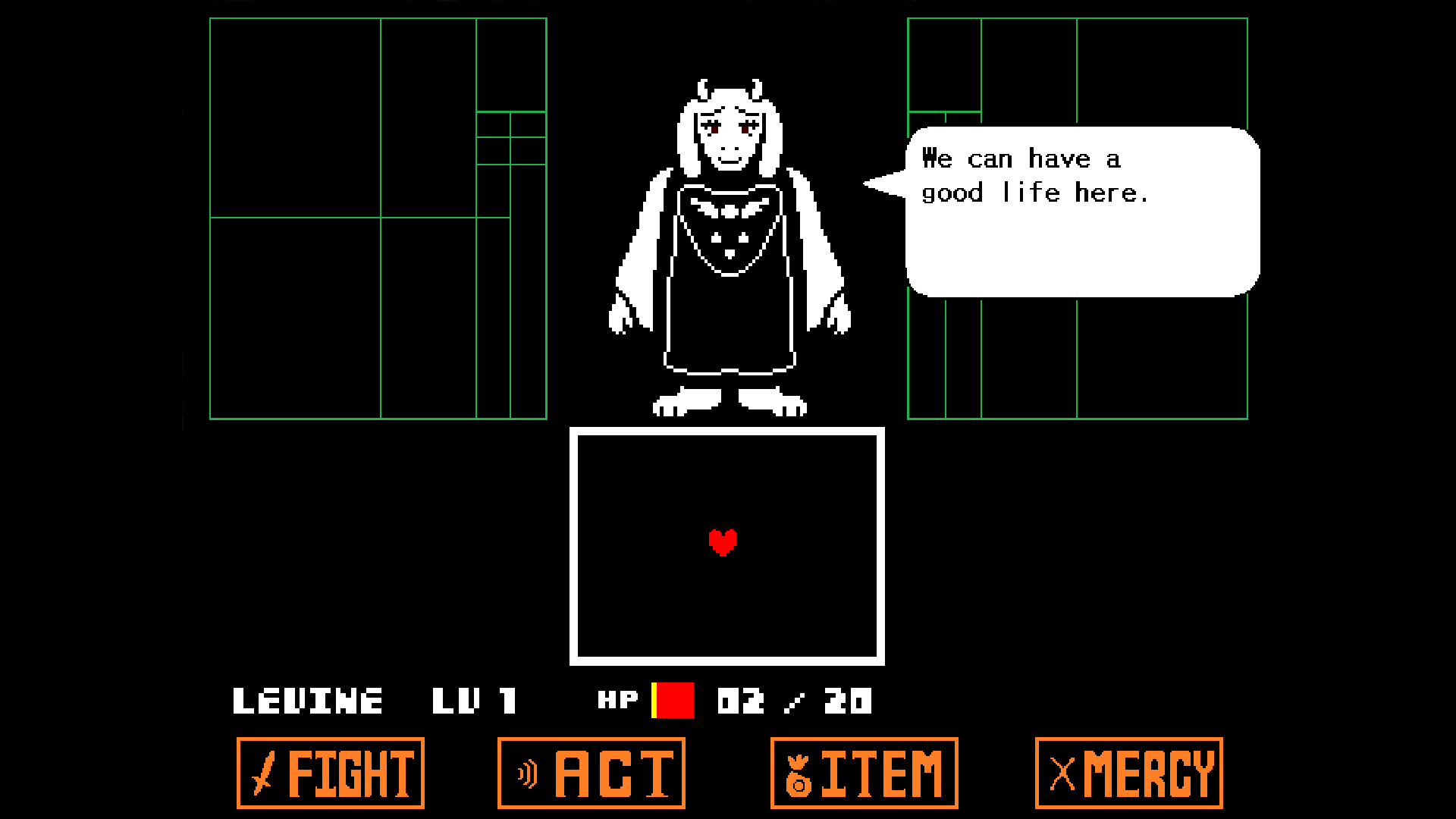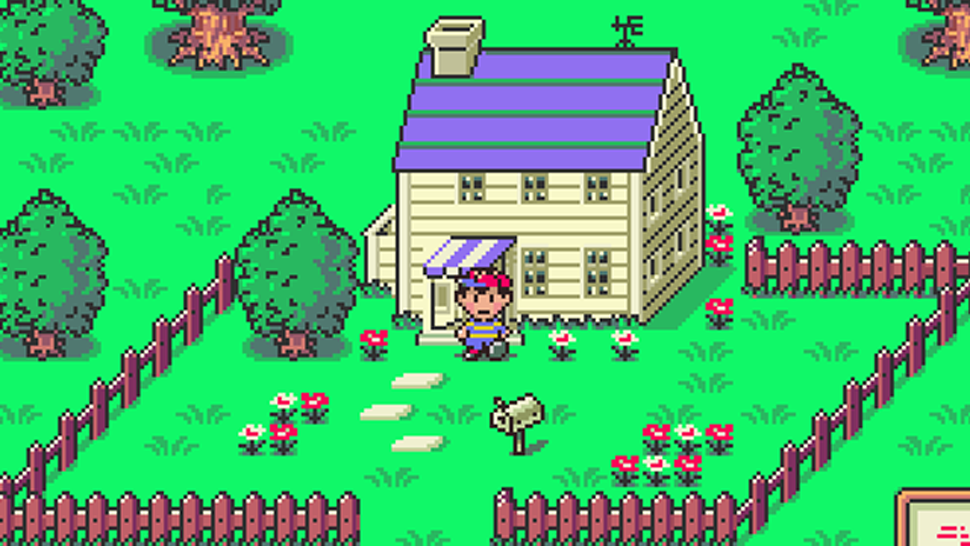I don’t think Earthbound/Mother 2 needs much of an intro, but if you need it, it’s a Super Nintendo RPG set in modern times with an unhealthy dose of pop culture references and humor that’s got quite the cult following. The series isn’t very long, but perhaps its uniqueness and history of being unavailable to English made it somewhat legendary. Well, those of us who grew up with the game are in the work force now, and it’s inspiration has lead to two interesting Kickstarters: Citizens of Earth and Undertale. Both drew a lot of inspiration from the same source, but each branched out into completely different directions.
Now, admittedly, the game Lisa is another Kickstarter that was inspired by the Earthbound/Mother series, and we’ve reviewed it, but I feel that it is kind of in the middle between Undertale and CoE: good reviews, but has a very selective audience. It’s also sadly a game I haven’t finished but will have to do since, despite not appearing on a popular reddit thread’s “What to Play After…” image, it’s very visible in the comments section.
The Publisher’s Choice
 Let’s start with Citizens of Earth. Not only is it the older of the two games we’re focusing on, but it’s actually my first Kickstarter. I’ve mentioned it before, but I originally wasn’t a fan of the game. While many people I knew disliked the graphics, I actually liked them. No, my problem was that I’d seen Earthbound inspired fan games before and had a strong aversion to them. Seeing one asking for funds seemed insane. Then I got my hands on the demo. While I still feel the references to EB are a little blunt, the overall gameplay won me over, fast. CoE used a large cast of collectible characters each with unique moves and combos that made their mechanics quite diverse. It had a big world and lots of variety of gameplay, like an RPG car race. Add in a healthy dose of humor and parody and you’ve got a really loveably game (if you aren’t turned off by mobile-game-like graphics or seemingly political plots).
Let’s start with Citizens of Earth. Not only is it the older of the two games we’re focusing on, but it’s actually my first Kickstarter. I’ve mentioned it before, but I originally wasn’t a fan of the game. While many people I knew disliked the graphics, I actually liked them. No, my problem was that I’d seen Earthbound inspired fan games before and had a strong aversion to them. Seeing one asking for funds seemed insane. Then I got my hands on the demo. While I still feel the references to EB are a little blunt, the overall gameplay won me over, fast. CoE used a large cast of collectible characters each with unique moves and combos that made their mechanics quite diverse. It had a big world and lots of variety of gameplay, like an RPG car race. Add in a healthy dose of humor and parody and you’ve got a really loveably game (if you aren’t turned off by mobile-game-like graphics or seemingly political plots).
The Kickstarter failed, but obviously I wasn’t the only one impressed. Atlus ended up funding the game, and even helped add voice acting. I’m usually not a fan of the VA work on Atlus games, but Citizens of Earth‘s was exceptional by comparison, especially for the main character, the Vice President of the World (VP). Much like Earthbound, the modern setting, humor, overworld battles, and general charm helped the game get quite the following.
However, the game received mixed reviews. The big cast of characters made dialogue and character development for most of them rather shallow. The big game world was a little confusing at times since there were areas that were totally optional and only found if you were exploring, and the lack of a world map made these areas a bit hard to find. The variety of gameplay was also criticized for being half baked. Worst of all, the game was released on several different platforms, and the QA for each different system somehow allowed the game to be published with multiple client-crashing bugs. Were it not for Eden Industry’s inclusion of an auto-save mechanic each time you change zones, the game might have been unplayable.
 In my post-mortem interview with the lead game creator, Ryan Vandendyck, I noticed a few themes that even lead to a series of articles on the gaming industry. The very things that set the game apart sadly kept it in the niche market. More time developing certain features might have been nice, but would have slowed down progress on the game that the team may not have had funds for. Atlus did give the developers more money and assistance, but also added some dialogue that slightly undermined the heart of the game’s inclusiveness, taunting characters’ outsider status when the original intent was to be more inclusive (except for the lead character who’s obviously in need of some personal growth, but that’s what I found charming). There were heartfelt moments, but they were lost in in a pool of one-liners.
In my post-mortem interview with the lead game creator, Ryan Vandendyck, I noticed a few themes that even lead to a series of articles on the gaming industry. The very things that set the game apart sadly kept it in the niche market. More time developing certain features might have been nice, but would have slowed down progress on the game that the team may not have had funds for. Atlus did give the developers more money and assistance, but also added some dialogue that slightly undermined the heart of the game’s inclusiveness, taunting characters’ outsider status when the original intent was to be more inclusive (except for the lead character who’s obviously in need of some personal growth, but that’s what I found charming). There were heartfelt moments, but they were lost in in a pool of one-liners.
Let’s be blunt though: the game had mobile-style graphics, open-world inspired gameplay, a large and unique character roster, unique mechanics, varied gameplay, voice acting, and heavy inspiration from a game with a massive cult following. It’s very clear why Atlus gambled on supporting the game. As a modern gamer who isn’t blinded by nostalgia, if you put Citizens of Earth and Undertale pitches side by side, I’d probably bet on CoE each and every time. Undertale has some interesting quirkiness, but a Game Maker game with retro-style graphics doesn’t exactly inspire consumer confidence… most of the time. The public backed Undertale, but not CoE‘s newer graphics. However, there are other areas CoE went wrong.
While Eden Industry certainly respects its fans (even going to far as letting them create one of the characters), their product inspired them to make something commercially profitable rather than risk simply being niche. Eden Industry is a company, while Undertale‘s Toby Fox is… well, a professional amateur. There’s no shame in that, but if someone needs a whole game made, Eden Industries can do it. One factor that really holds Undertale back is the way it was developed. Game Maker games can’t easily be ported to a console, making it difficult to get mainstream gamers to even be aware of it. If it wasn’t for its diehard fans, Undertale may have ended up like Lisa: a technically interesting game loved by a small niche of players.
The Cult Experience
 Undertale is, without a doubt, the most highly rated Mother/Earthbound successor to date, and that’s weird. It’s got everything I disliked about a lot of early Mother/Earthbound inspired games: it’s made on Maker Game, it’s obviously indie, and the pitch makes the quirkiness sound forced. As I mentioned in my review, one look at the game actually made me forget about it. While both games had demos, Citizens of Earth‘s made heavy use of Earthbound/Mother references and gameplay; Undertale‘s had no memorable references aside from feelings.
Undertale is, without a doubt, the most highly rated Mother/Earthbound successor to date, and that’s weird. It’s got everything I disliked about a lot of early Mother/Earthbound inspired games: it’s made on Maker Game, it’s obviously indie, and the pitch makes the quirkiness sound forced. As I mentioned in my review, one look at the game actually made me forget about it. While both games had demos, Citizens of Earth‘s made heavy use of Earthbound/Mother references and gameplay; Undertale‘s had no memorable references aside from feelings.
The game is truly an experience. Forget all the innovation for a moment (which is quite good for any game let alone an Game Maker indie). Undertale‘s very inclusive with it’s fan base, but it does this in almost the opposite way of Citizens of Earth. It taunts a little, but it does so in ways we taunt ourselves. The anime references and social media obsession with several characters could easily have been mishandled with a more corporate publisher that hires writers who may not associate with certain subcultures, which was something I only noticed in CoE after Atlus came on board. Undertale, however, always made jokes in ways I would with close friends. It’s one of the reasons it probably did so well with both critics and players.
Citizens of Earth excelled at giving players different gameplay styles, while Undertale excelled at developing and building on a few styles. I have to give CoE bonus points in it’s superior racing mini-game, but otherwise, Undertale‘s building of familiar game mechanics helped focus the experience, rather than spreading it. Although I could appreciate and obsess more with CoE‘s combat and characters, which is something that bores me most other RPGs, Undertale got me to forget about combat almost completely, and that’s something I genuinely love about it. We get combat in games so much that most people in the industry almost seem to forget that games can be about more than fighting. A recent article on games, regret, morality, and griefers showed that a game like Undertale can teach players something; it can be more than stats and pixels, but a way to get people to feel bad about doing something unsociable, and that it can still be enjoyable.
And that’s the big thing that Undertale has going for it: the feelings. Citizens of Earth had some wonderful family moments along the way, and the ending, while not a huge tear jerker, did move me. In fact, I was angered by the fact that many reviewers disregarded these moments in the game. However, it may be because they get lost in the myriad of optional side characters and quests that largely provide a short chortle and distraction from the main plot, which is rather thin. Undertale, however, is all about emotion, right from the start. The mechanics are fun, but there’s so much in the story, so much in the names, that the game begs the player to invest in it, all before they’ve probably started their second game to test all the wonderful mechanics that invoke even more emotional responses. That is something every Mother/Earthbound fan mentions remembering about the game.
Hooked on a Feeling
While Mother/Earthbound is remembered for a lot of innovations, such as non-random battles and quirky humor, it’s the overall feeling that sets it apart. It’s modern, personable, family oriented. That’s something Citizens of Earth, Undertale, and even Lisa have as part of their core. It’s a sense of normalcy not often found in your average game, let alone your average RPG. When combined with quirky humor and modernish settings, you can see how Mother/Earthbound is influencing modern games. When Itoi-san said, “[…] if someone approached me and said that they’d like to make MOTHER 4, I might just tell them to go for it,” this is what he meant. Not a literal sequel but, as he noted elsewhere, but spiritual successors.





Really love this article Laguna, a great read. Although, I feel like a bad person for having never played Earthbound :/
I have to say, I’ve played both Earthbound and Earthbound 2…..and I prefer Undertale to both of them.
Earthbound is absolutely a cool game….but I feel like the story and character interaction gets overhyped somewhat. (particularly in Earthbound) I love the atmosphere and quirky humour (probably my two favourite things from those games) of course but in terms of the characters and story it didn’t hook me as much as Undertale did. I found myself rooting for the characters in Undertale way more than I ever did for the characters in Earthbound.
Um… what is “Earthbound 2”? You mean Mother 3? ‘Cause Mother 3’s the official name of it in America at the moment (Lucas is always referenced as a Mother 3 character, not “Earthbound 2”).
I have to admit that, in a lot of ways, I live Undertale more as well as a single Mother game. However, Undertale is also a much tighter game and has a different focus. Earthbound is, oddly enough, a bit more grounded in reality. Yeah, the series is weird, but the towns are towns, the weapons are weapons, the people are people. While there’s a lot of symbolism in Undertale, Earthbound’s easier to grasp I think, and is perhaps a bit more minimalistic.
I don’t think it’s entirely unfair to compare them. You make some valid points, which is why I wish classic games would get remakes like movies. Keep them relevant. Kids these days don’t have the attention span they used to, and they have a lot more options for games before we even discuss the comparison between console gaming and mobile gaming.
[…] list of Earthbound inspired games is growing, with En House Studios continuing the trend with fourth wall breaking, existentially […]